- Home
- JoAnn Ross
Far Harbor Page 3
Far Harbor Read online
Page 3
Fat black-and-yellow bees droned lazily around the roses. Next door the neighbor’s cat was returning from his nightly rounds of the town. Ignoring Savannah, the fat old tom curled up into a ball in a slanting sunbeam on his owner’s front porch and began washing his marmalade fur.
A familiar car turned onto the road leading up the hill. A minute later, it pulled to a stop in front of the house; the driver’s door opened, and Lilith emerged in a graceful swirl of skirt the hue of crushed blueberries. Along with the silk skirt and tunic she also wore a necklace of hand-strung crystals, a pair of lacy webbed dream-catcher earrings and a frown that made Savannah’s stomach knot.
Having already pinned her hopes on her admittedly ambitious project as a means of reinventing herself, Savannah didn’t know what she’d do if her mother had come bearing bad news about the lighthouse she’d already come to think of as hers.
3
“Y ou’re certainly up and about early,” Savannah greeted her mother with far more aplomb than she felt. “I thought we weren’t scheduled to meet with Mr. Hyatt until late this afternoon.”
“Your grandmother’s on the committee for this year’s Sawdust Festival,” Lilith divulged as she climbed the front steps, bringing with her the exotic scent of custom-blended perfume that always made Savannah think of gypsies dancing around blazing campfires.
“She roped me into helping with entertainment, so we’re going to Port Angeles this morning to check out a couple bands and have our fortunes told by Raven Moonsilver. Raven’s a friend of mine, and since the committee’s split on whether or not to hire her to read palms, as chairman, Ida gets to cast the deciding vote.”
Her mother’s gaze took in Savannah’s blue mug. “Thank God you’ve made coffee. While I try to stick to herbal teas these days, my system definitely needs a jump start at this ungodly hour of the morning.” She disappeared into the house.
The thought of the always practical Ida Lindstrom having her palm read was nearly as difficult to accept as the idea of this glamorous creature, who’d periodically blazed through Raine’s and Savannah’s lives like a comet, turning her creative talents toward something as prosaic as a small-town logging festival.
Lilith returned with a mug of steaming coffee liberally laced with cream and sat down on the top step.
“I ran into Dan yesterday at the lighthouse,” Savannah divulged. “He’d come with John Martin to plant flowers. He mentioned something that’s been worrying me.” She paused, hoping as she had all night that she was making too much of Dan’s remarks regarding the lighthouse owner.
“What’s that, darling?”
“That Henry Hyatt might prove a problem.”
Lilith took a careful sip of coffee before answering. “I’m not certain problem is precisely the word I’d use.”
Concern stirred again, along with a niggling suspicion. “What are you holding back?”
“Absolutely nothing.” Lilith toyed with her necklace. “The Board of Realtors would take away my license if I failed to give full disclosure on a property.”
“Okay. Perhaps you’re not hiding anything about the lighthouse. What about the owner?”
“You always were my more intuitive child.” Lilith’s pansy blue eyes gleamed with affection. “I believe you take after the same Celts who gifted you with all that lovely Titian hair. After all, it’s common knowledge that the women from that branch of the family all possess second sight, and—”
“Mother.” Savannah cut Lilith off and looked her directly in the eye. “We’re not talking second sight here. It’s merely the process of elimination. If there’s some impediment to my buying the lighthouse, and it doesn’t involve the property itself, then it would stand to reason the problem is with the owner.”
Lilith slid her veiled gaze out over the sparkling bay. “I don’t believe Henry really wants to sell the lighthouse.”
There had been several times over the past days when Savannah had questioned the practicality of attempting to refurbish such a ramshackle property. Still, her heart sank at this news.
“Then why on earth would he list it in the first place?”
“Because he doesn’t want it any longer.”
“I don’t understand.”
Another sigh. “The problem is, he doesn’t want anyone else to own it, either. Not so long as his mother’s spirit is still there.”
“I should have known you’d believe in the ghost.”
“I’ve never seen her. But that doesn’t mean she doesn’t exist.”
“Well, if she does, I certainly hope she knows how to use a paint brush, because her former home is in definite need of a new coat of paint.”
Lilith waved the comment away with a graceful, beringed hand; her recently acquired wedding band—engraved with wolves because they mate for life, she’d explained—gleamed in the morning light. “Well, whatever Henry’s feelings, you shouldn’t have any problem convincing him to sell. He may be getting up in years, but he’s still a man.”
“A bitter, dried-up old man,” a voice offered from the doorway. Ida Lindstrom’s head was barely visible over the huge cardboard box she was holding. “He was never all that much of a charmer, but after his wife died, he turned downright ornery.”
Savannah’s grandmother was a small, wiry woman known throughout the county for her seemingly endless trove of energy, her dedication to her former patients, and her strong, often controversial opinions.
In contrast to her glamorous daughter, she was wearing baggy jeans and a T-shirt that read Of Course I Believe You, But Can I Get It in Writing? The message was pure Ida, which Savannah feared didn’t exactly bode well for Lilith’s palm reader friend.
“It must be eight years since Ruth passed on,” Lilith reminded her mother. “Which means that Henry’s been without female companionship for a very long time. I can’t believe that he wouldn’t jump at the chance to spend the afternoon with our Savannah.”
“I refuse to stoop to using feminine wiles to talk Henry Hyatt into selling me his lighthouse,” Savannah insisted.
“Of course you wouldn’t,” Ida agreed briskly. “You’re my granddaughter, after all, and everyone knows that rolling stones don’t fall far from the trees.” Along with her bumper-sticker T-shirts, the retired general practitioner had long been Coldwater Cove’s queen of malapropisms.
Lilith rolled her expressive eyes as she rose from the step, handed Savannah her empty mug and took the box from Ida’s arms. “This weighs a ton,” she complained. “What do you have in it, rocks?”
“Of course not. Why would I want to be mailing rocks to anyone?” Ida was looking at the box as if seeing it for the first time. “Who’s it for, anyway?”
Lilith exchanged a brief, puzzled look with Savannah. “Since it’s addressed to Gwen, I assume it’s for her.”
“Well, of course it is.” Ida’s brow cleared. The momentary confusion in her eyes was replaced by the usual bright intelligence that reminded Savannah of a curious bird. “When she called last night from science camp, I could tell she was homesick, so I’m sending her a bunch of her favorite things. Wouldn’t want the girl to get so upset she starts shoplifting again.”
Knowing that they were the first reasonably stable family Gwen had experienced during her rocky sixteen years, Savannah could understand how hard it must be for her to be away from Coldwater Cove for any length of time, even if the teenager who dreamed of following in Ida’s physician footsteps was doing something she loved—something Savannah dearly hoped would help keep her mind off the baby she’d recently given up for adoption.
“Well, the day’s not getting any younger, and neither am I,” Ida announced suddenly. “If we’re going to get our futures told, we might as well get going.”
“Please promise that you’ll keep an open mind,” Lilith asked her mother with a deep, exaggerated sigh.
“Does this palm reader friend of yours wear a turban?”
“No.”
“How about talking to
the dead?”
“That’s not her field of psychic expertise.”
“Then we’ll probably get on well enough.” The pewter bird nest of hair piled precariously atop Ida’s head wobbled as she nodded with her typical decisiveness that eased any lingering concern Savannah might have had about her earlier confusion. “So long as you girls both keep your clothes on.”
With that pointed reference to Lilith’s nude Beltane dancing, she marched toward the car, leaving her daughter to follow.
“Wish me luck,” Lilith murmured as she bent to kiss Savannah’s cheek. “After this outing, the meeting with Henry this afternoon should be a piece of cake.”
Eight hours later, Savannah discovered that her mother’s prediction had been optimistic.
The Evergreen Care Center was a redbrick building nestled in a grove of fir trees at the far end of town. The designers had done their best to make the center appealing, with outdoor patios, a sunroom, bright colors, and framed paintings designed to stimulate both the eye and the mind. A bulletin board, covered in grass green burlap, announced a crowded activity schedule that included wheelchair bowling, a morning newspaper group, and the monthly visit of Pet Partners, an organization of dog owners who’d bring their pets to visit the residents.
“Can you imagine ever putting your grandmother in a place like this?” Lilith murmured as they entered the lobby furnished with tasteful antique reproductions.
“Not in a million years.”
Savannah thought that there must be a better way than to warehouse people at the end of their lives. Not that Ida was at the end of her life. She may have edged into her late seventies during Savannah’s time away from Coldwater Cove, yet except for that little unexplained dizzy spell that had landed her in the hospital a few months ago, her grandmother was as energetic and strong-willed as ever.
Despite the fact that Savannah and Lilith had arrived at the care center ten minutes early, Henry Hyatt was already waiting for them in the sunroom.
“Oh, dear,” Lilith said under her breath. “That’s him, in that chair upholstered in the bright nautical-theme sailcloth.”
The elderly man’s back was to the glass wall, which, Savannah noted with a grudging respect for his negotiating tactics, would force her to look directly into the setting sun. The scowl on his face could have withered a less determined woman.
Refusing to be intimidated, Savannah reminded herself that getting into a power contest with this frail, elderly man was no way to achieve her goal.
“Good afternoon, Mr. Hyatt.” Her brilliant smile, an unconscious replica of her mother’s, revealed not an iota of her churning emotions. An emerald ring once given to her by a Saudi prince who’d hired her to cook his fiftieth birthday dinner flashed like green fire in the slanting rays of tawny light streaming into the room.
“It’s a pleasure to finally meet you.” When his talon-like hand stayed right where it was atop the carved wooden cane, Savannah slowly lowered hers. “I’ve admired the Far Harbor lighthouse for years.”
“You and all those other tourists who keep coming around, pestering a man, wanting to take pictures and have themselves a tour, never once thinking that a lighthouse isn’t some new attraction at Disneyland.”
Acid sharpened a scornful tone that wavered ever so slightly with age. Or emotion? Savannah wondered. In either case, it was not a propitious beginning.
“Now, Henry,” Lilith soothed as she gracefully settled into a chair across from him. “You know very well that Savannah’s not a tourist. Why, she spent practically her entire life growing up on the peninsula.”
“Because her scatterbrained gadfly of a mother didn’t see fit to take care of her,” he snapped querulously.
Savannah heard Lilith draw in a breath at the sharp accusation, but outwardly her mother appeared unscathed. “You’re right. I’ll always regret not having been a better mother, but we all make mistakes.” Lilith’s voice was as warm and throaty as ever, but Savannah noticed that her hands trembled ever so slightly as her fingers creased the broomstick pleats of her skirt. “Sometimes all we can do is move on.”
“You’ve always been good at that,” he grumbled. “Moving on.”
Savannah had humored him enough. Henry Hyatt may hold the keys to her future in his age-spotted hands, but that didn’t give him the right to intrude on her admittedly complex relationship with Lilith.
“I came here today to discuss a business proposition with you, Mr. Hyatt, not to stand by and listen to you insult my mother.”
An errant thought occurred to her. Could Henry possibly be comparing Lilith’s behavior to the way his own mother had abandoned him at such a tender age? Was it even possible to harbor a hurt or hold a grudge for so many years?
He tilted his head and looked up at her. “Didn’t anyone ever teach you, when you were down in California”—he spat out the name of her former home as if it had a bad taste—“that sassin’ a man who has something you seem to want so damn bad is a piss-poor way of doin’ business?”
“The Far Harbor lighthouse is not the only piece of property for sale on the peninsula, Mr. Hyatt.” She sat down in a wing chair beside her mother and crossed her legs. Proving that Lilith wasn’t the only actress in the family, she kept her smile cucumber cool and just the slightest bit condescending. “Merely the most run-down.”
Before Henry could respond to that, the door opened and Dan walked in, bringing with him a distant scent of the sea. “Sorry I’m late.” His face was tanned from the sun, his hair windblown. “My meeting ran late.”
“Meeting, hell.” Henry focused his ill humor on his attorney. “Anyone with two eyes and half a brain can see you’ve been out sailing.”
“Got me there,” Dan replied equably. “As it happens, my meeting took place on a yacht.”
“Ha! That’s a likely story.”
“It’s true. My client’s a software mogul who, like so many of his breed, tends to be a bit paranoid. He prefers doing business where there’s less likelihood of conversations being overheard—such as out in the middle of the sound.”
“You always were quick with the excuses,” Henry shot back. “Like that time you broke the window on my Olds.”
“When I fouled off my cousin Caine’s curveball through your windshield.” Dan glanced over at Savannah and winked. “I spent the rest of the summer paying it off by painting the lighthouse.”
“Wouldn’t have taken you so long if you hadn’t been so damn slow.”
“If I was slow it was because I spent the first two weeks shaking like a leaf from my newly discovered fear of heights. I got more paint on me than I managed to get on the lighthouse.”
“Mebbe I should have you paint it again.” Henry waved a faintly palsied hand toward Savannah. “Since this little gal thinks it’s a bit run-down.”
“More than a bit,” Savannah corrected.
The way she tossed up her chin and stood up to a man who’d elevated the knack of being irritating to an art form had Dan suspecting that Savannah may have toughened up a bit since having been elected Miss Congeniality of her senior class.
“Girl’s got a funny way of charming me into selling the place,” Henry complained. Having come to know his irascible client well, Dan realized that the old codger was actually enjoying himself.
“I’m making you an offer for the lighthouse.” Savannah’s clipped tone revealed her growing frustration. “I’m not asking to become your new best friend.”
He cackled at that. “Gal’s got spunk, O’Halloran.”
“Seems to.” Dan nodded. “Perhaps even enough to save the place from a wrecking ball.”
Henry’s pale blue eyes narrowed. “That’s your job.”
“Fending off developers is my job. Replacing the wiring, reglazing the windows, sweeping spiders out of the corners, and chasing bats out of the attic is beyond the call of lawyerly duty.”
“Bats?” Savannah’s incredible green eyes widened. “Please tell me you’re not serious.�
��
“Now you’ve done it, O’Halloran,” Henry spat out. “Probably caused the price to drop another ten thousand bucks. Ten thousand I should take out of your fee.”
Dan refrained from responding that Henry would have to pay him first before he could go deducting anything. Old man Hyatt was not only Dan’s most irascible client, he was also the most time-consuming of his pro bono cases.
“Now there’s an idea,” he murmured.
“Actually, bats may be a plus,” Lilith offered in her usual blithe way. “Since they eat insects.”
“Anyone knows about bats, it should be you,” Henry barked on a laugh roughened by old age and years of tobacco smoke. “Seein’ how your own mother has a few in her belfry these days.”
“My grandmother served this community for fifty years,” Savannah reminded Henry in a flash of very un-Savannah-like anger. Dan resisted the urge to applaud. “Which undoubtedly means that she’s treated you.”
“From time to time, mebbe,” Henry muttered. “It’s hard to recollect.”
“I seem to recall Mother mentioning a case of pneumonia that nearly proved fatal because you were too stubborn to seek medical help,” Lilith interjected. “Why, if Gerald Lawson hadn’t stopped by that day to collect for the newspaper and called Mother, who, by the way, came out in a blizzard to care for you, you might not be here today, Henry.”
Lilith’s own flare of heat suggested she was on the verge of losing her temper. A woman of strong emotions, she’d advised Dan after his sister’s funeral that holding in one’s feelings was unhealthy for mind, spirit, and body. Months later, apparently practicing what she preached, she’d been arresting for dancing nude in Olympic National Park and ripping up Cooper Ryan’s citation book.
That little display of unbridled emotion had gotten her hauled into the park jail, but displaying a seemingly lifelong ability to land on her feet, a month later she’d become Mrs. Cooper Ryan. If there was any more nude dancing going on, Lilith was staying out of public parks and restricting her audience to her new husband.

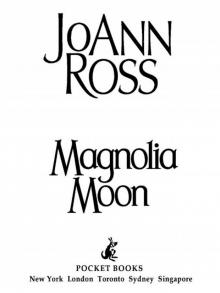 Magnolia Moon
Magnolia Moon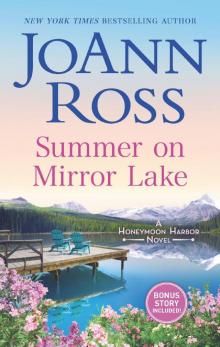 Summer on Mirror Lake
Summer on Mirror Lake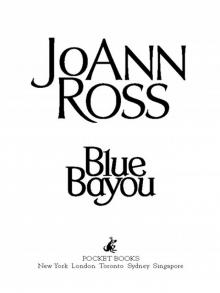 Blue Bayou
Blue Bayou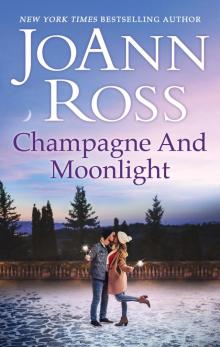 Champagne and Moonlight
Champagne and Moonlight No Regrets
No Regrets Long Road Home
Long Road Home Southern Comforts
Southern Comforts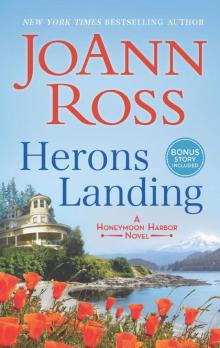 Herons Landing
Herons Landing Untamed
Untamed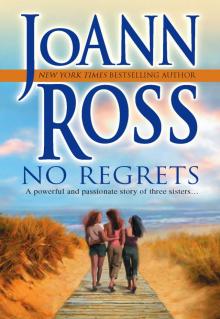 No Regrets (Mira Romance)
No Regrets (Mira Romance)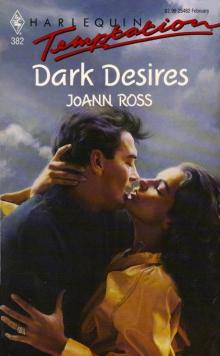 Dark Desires
Dark Desires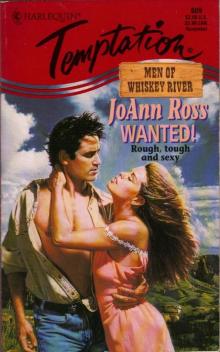 Wanted!
Wanted! River Road
River Road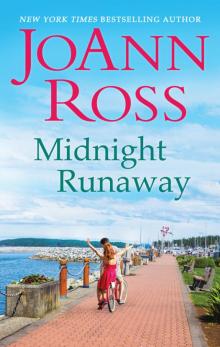 Midnight Runaway
Midnight Runaway The Long Way Back
The Long Way Back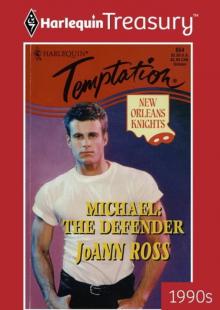 Michael: The Defender
Michael: The Defender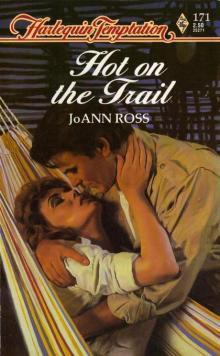 Hot on the Trail
Hot on the Trail When I'm With You
When I'm With You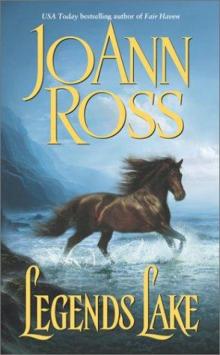 Legends Lake
Legends Lake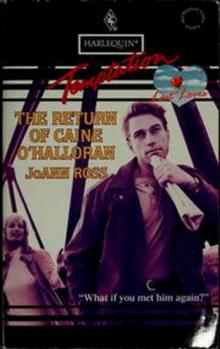 The Return of Caine O'Halloran
The Return of Caine O'Halloran Dance with a Dynasty
Dance with a Dynasty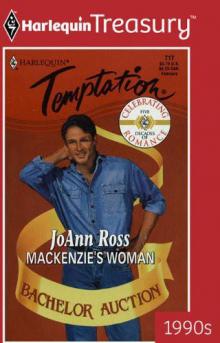 MacKenzie's Woman
MacKenzie's Woman Impulse
Impulse Sunset Point: A Shelter Bay Novel
Sunset Point: A Shelter Bay Novel You Again: A Shelter Bay novella (Shelter Bay series Book 8)
You Again: A Shelter Bay novella (Shelter Bay series Book 8)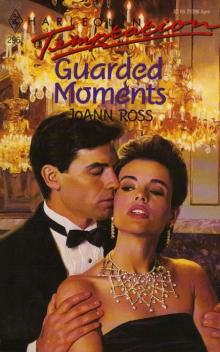 Guarded Moments
Guarded Moments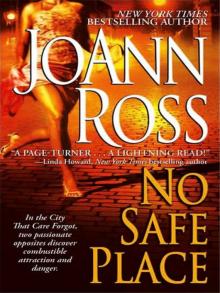 No Safe Place
No Safe Place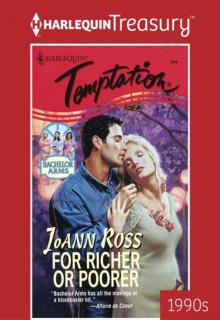 For Richer or Poorer
For Richer or Poorer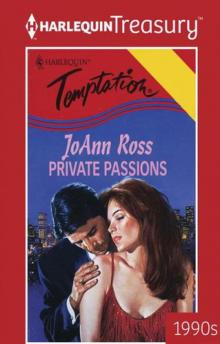 Private Passions
Private Passions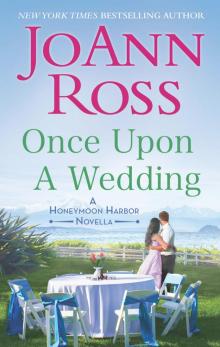 Once Upon a Wedding
Once Upon a Wedding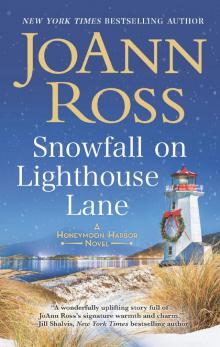 Snowfall on Lighthouse Lane
Snowfall on Lighthouse Lane Christmas on Main Street
Christmas on Main Street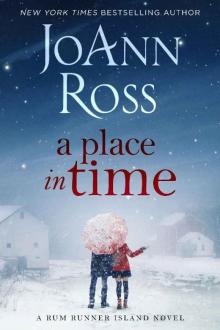 A Place in Time (Rum Runner Island Book 1)
A Place in Time (Rum Runner Island Book 1)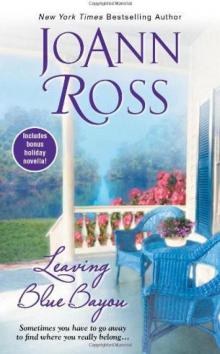 Leaving Blue Bayou
Leaving Blue Bayou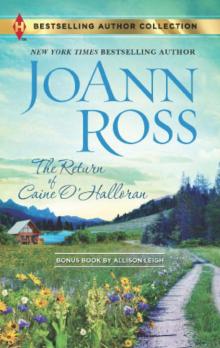 The Return of Caine O'Halloran: Hard Choices
The Return of Caine O'Halloran: Hard Choices Lucky in Love
Lucky in Love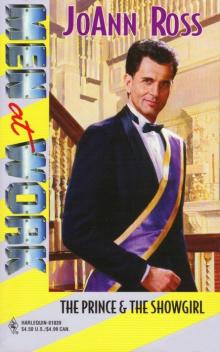 The Prince & The Showgirl
The Prince & The Showgirl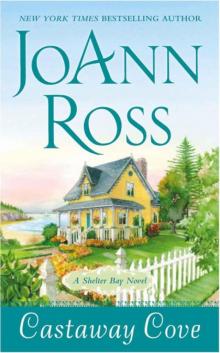 Castaway Cove
Castaway Cove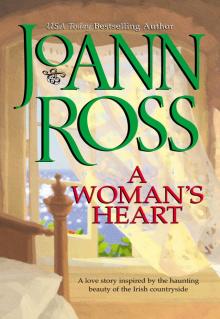 A Woman's Heart
A Woman's Heart One Summer
One Summer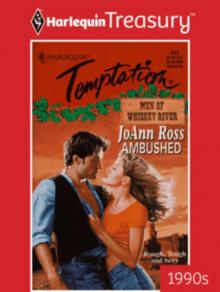 Ambushed
Ambushed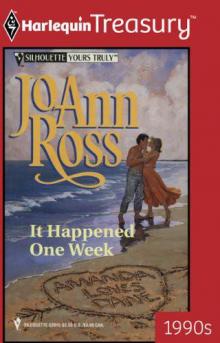 It Happened One Week
It Happened One Week Home by the Sea
Home by the Sea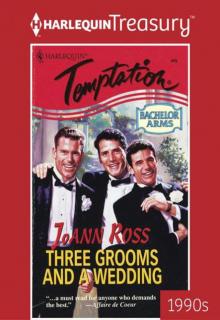 Three Grooms and a Wedding
Three Grooms and a Wedding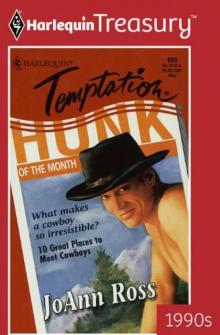 Hunk of the Month
Hunk of the Month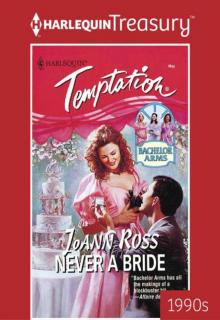 Never a Bride
Never a Bride Sun Kissed
Sun Kissed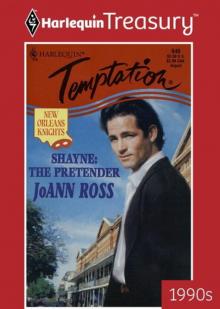 Shayne: The Pretender
Shayne: The Pretender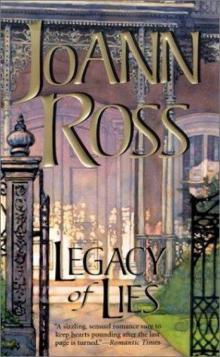 Legacy of Lies
Legacy of Lies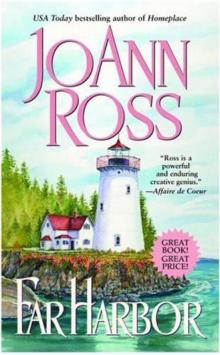 Far Harbor
Far Harbor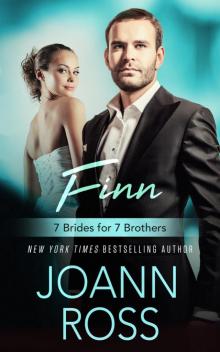 Finn
Finn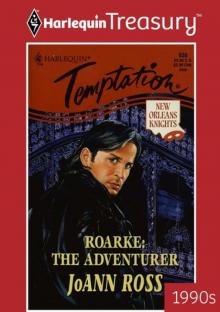 Roarke: The Adventurer
Roarke: The Adventurer I Do, I Do...For Now (Harlequin Love and Laugher)
I Do, I Do...For Now (Harlequin Love and Laugher) Briarwood Cottage
Briarwood Cottage On Lavender Lane
On Lavender Lane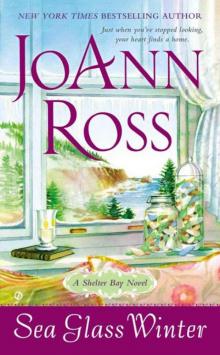 Sea Glass Winter
Sea Glass Winter River's Bend
River's Bend Christmas in Shelter Bay
Christmas in Shelter Bay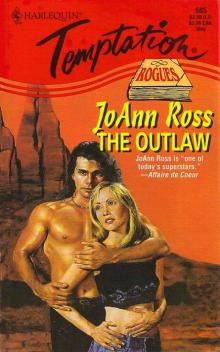 The Outlaw
The Outlaw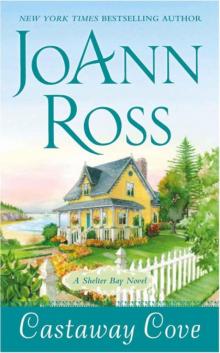 Castaway Cove (2013)
Castaway Cove (2013) Confessions
Confessions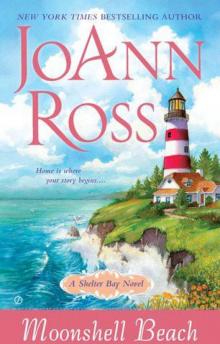 Moonshell Beach: A Shelter Bay Novel
Moonshell Beach: A Shelter Bay Novel